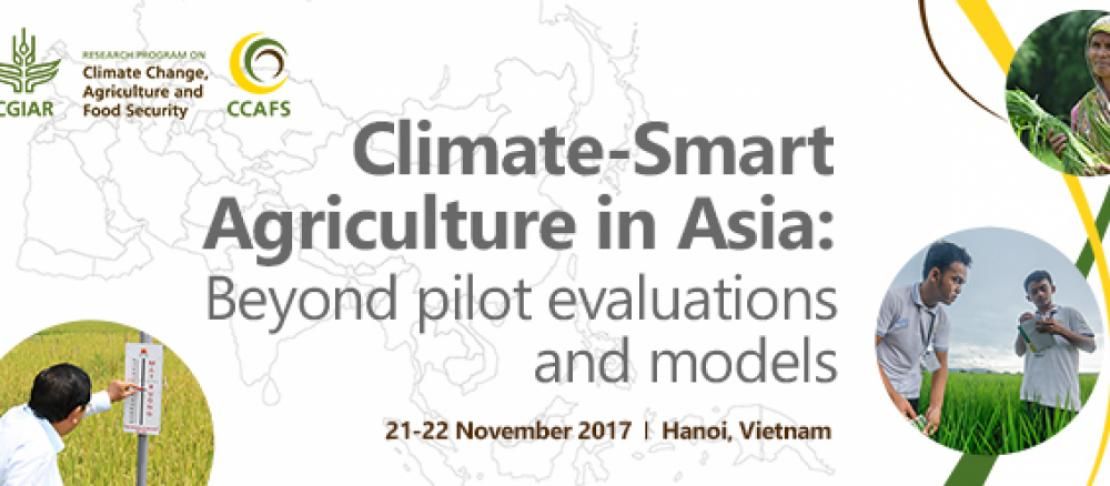Workshop: Climate-Smart Agriculture in Asia: Beyond pilot evaluations and models

In the last few years, several research and pilots have been undertaken by the CGIAR Research Program on Climate Change, Agriculture and Food Security (CCAFS), National Agricultural Research Systems (NARS), civil society and other stakeholders with the major goal of scaling out and scaling up climate-smart agriculture (CSA). CCAFS has been very active in creating evidence base for various CSA interventions, including technologies and practices, climate information services and insurance, mitigation of greenhouse gases, and innovative institutions and policies in many countries of Southeast and South Asia. The Climate-Smart Village (CSV) approach, a participatory approach to evaluate synergies and trade-offs between various CSA options, has been evaluated in India, Nepal, Vietnam, Cambodia and Laos. Climate information services have been active in many part of Asia, whereas there is rich experience on insurance in India and from several pilots done in other countries. Vietnam and Bangladesh have actively pursued alternate wetting and drying (AWD) in rice as a measure to reduce GHG emissions and increase resilience.
It is time for us to review the lessons learnt from these and other pilots and models that can help in rapid scaling up of CSA options. Mechanisms to support the sustainability of these efforts need to be widely promoted among policymakers, NARS, civil society and farmers groups. Strategies need to be highlighted for influencing government as well as private institutions at various levels to incorporate CSA into developmental planning and governance systems. Incentives for development partners to enhance participation and propagate CSA outcomes at a regional scale need to be understood.
The current workshop, sponsored by the CCAFS programs in Southeast Asia and South Asia, is being organized to bring together key stakeholders to discuss and exchange learnings in order to achieve the following objectives:
- Identify scalable CSA options and methods of scaling them, especially those related to technologies, climate information services, and insurance;
- Identify key selling points of CSA and its value for banks and development partners; and
- Establish ways to make CSA R4D responsive to upscaling and big investment in Asia.
Workshop agenda
Day 1 – 21 November 2017 (Tuesday) |
|
|
|
|
Day 2 – 22 November 2017 (Wednesday) |
|
|
|
|
|